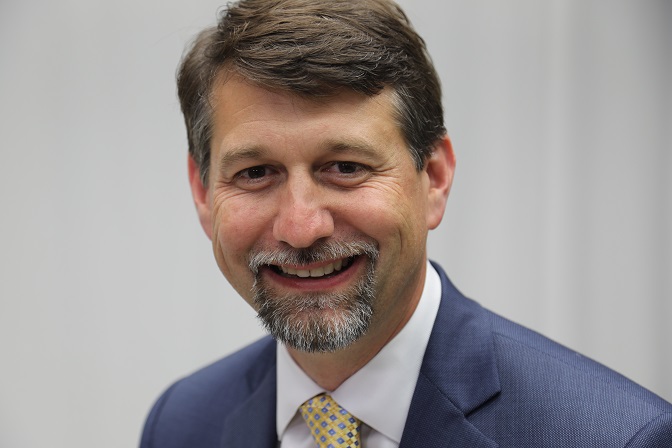Over the last few months, we all have seen the memes about 2020. My favorite: “If 2020 were a piñata” superimposed over a picture of a huge paper wasp nest. I love dark humor. As they say, misery loves company and you never want to laugh alone because those people get locked up.
The ugliness of this moment only seems to mount. First it was a pandemic, recession, racial violence and political turmoil, not to speak of our own budget challenges and the uncertainties of higher education. Now the natural world seems to be revolting: derechos (who had heard of that), wildfires (again), and hurricanes (two at one time!). Personally, I have become interested in astronomy because I want to see the meteor before it strikes. Of course, there have been much worse moments in human history and what we see as a miserable year in America pales in comparison to other moments: Rwanda 1994; Syria this entire past decade; North Korea the last 60 plus years. These are not laughing matters. So while I still believe 2020 is a paper wasp piñata, those other challenging times put our moment in perspective.
There is, however, another perspective we need to take about this: God’s. This year is no different than any other year since the fall when Adam and Eve made a mess of the world by claiming autonomy and trying to sort the world out for themselves. Today, we try to insulate ourselves from the brokenness of our world by belief in technological and scientific progress to usher in a new humanity, but like every idol before, these too will fail us. But these moments are not too big for God. He delights in turning annus horribilis into annus mirabilis. So how does God do this? There are at least four ways:
1. Remaining faithful and thereby teaching us to be the same
2. Partnering with faithful followers to redeem what is lost and heal what is broken
3. Working on a different timeline than the immediate
4. Seizing victory where the enemy sought defeat
The writer of Hebrews reminds us of God’s panache for transforming the moment by rehearsing the stories of those who lived through difficult times. The writer concludes with this stirring summary of Jewish history:
And what more shall I say? For time would fail me to tell of Gideon, Barak, Samson, Jephthah, of David and Samuel and the prophets-who through faith conquered kingdoms, enforced justice, obtained promises, stopped the mouths of lions, quenched the power of fire, escaped the edge of the sword, were made strong out of weakness, became mighty in war, put foreign armies to flight. Women received back their dead by resurrection. Some were tortured, refusing to accept release, so that they might rise again to a better life. Others suffered mocking and flogging, and even chains and imprisonment. They were stoned, they were sawn in two, they were killed with the sword. They went about in skins of sheep and goats, destitute, afflicted, mistreated-of whom the world was not worthy-wandering about in deserts and mountains, and in dens and caves of the earth. – Hebrews 11:32-38
I like reading these descriptions, but I am not so sure about living through them. As we live through our own unique moment, there is something for us each to learn individually. Here are some things I am praying about:
1. That I/we would be faithful
2. That I/we would leave a legacy for those who come after us
3. That I/we would seize the opportunities that God brings as platforms to tell others of his love and faithfulness
I would like to invite you to join in me in this prayer. And as we pray, let’s remember, unlike the list of faithful people above, we live on other side of the cross and have the Holy Spirit in us which is why the author of Hebrews ends this paean to the faithful with this:
And all these, though commended through their faith, did not receive what was promised, since God had provided something better for us, that apart from us they should not be made perfect. – Hebrews 11:39-40
